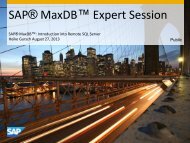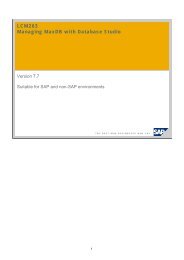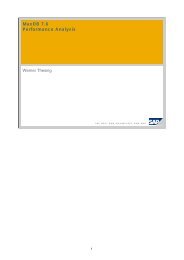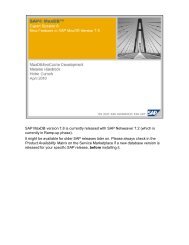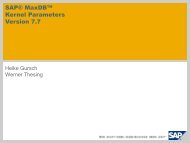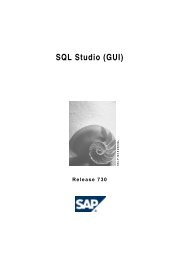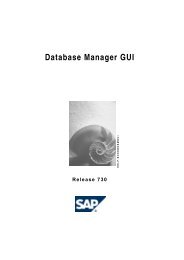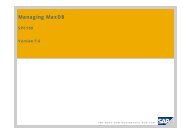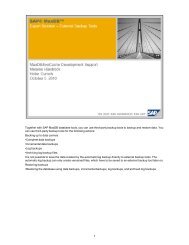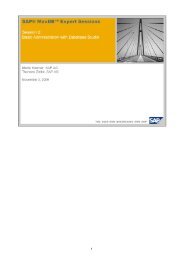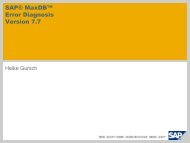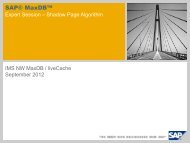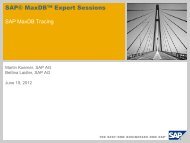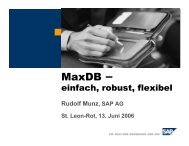Script (.pdf file, 8 MB) - SAP MaxDB
Script (.pdf file, 8 MB) - SAP MaxDB
Script (.pdf file, 8 MB) - SAP MaxDB
Create successful ePaper yourself
Turn your PDF publications into a flip-book with our unique Google optimized e-Paper software.
The following <strong>file</strong>s contain information for identifying the cause of database problems:<br />
The knlMsg diagnosis <strong>file</strong> is the most important source of information if database problems<br />
occur. This <strong>file</strong> logs the messages issued during communication between the runtime<br />
environment of <strong>MaxDB</strong> and the database kernel. Every time the database kernel is started,<br />
a new <strong>file</strong> is created and the existing <strong>file</strong> saved as knlMsg.old. The knlMsg <strong>file</strong> is also<br />
backed up immediately after a database crash and is kept until two further database<br />
crashes have occurred. These <strong>file</strong>s are stored in the directory defined by the<br />
"DiagnoseHistoryPath" parameter.<br />
The error messages in knlMsg are also logged in knlMsg.err. This <strong>file</strong> is not overwritten and<br />
can be archived and then deleted if it becomes very large. A new version of the <strong>file</strong> is then<br />
created automatically.<br />
The dbm.knl and dbm.mdf <strong>file</strong>s contain information about the backup history and the use of<br />
backup media and labels. Based on this information, the database instance can provide<br />
assistance during recovery processes. If these <strong>file</strong>s are lost, you have to determine the<br />
actions required for the recovery yourself.<br />
In contrast, the "dbm.prt" and "dbm.utl" <strong>file</strong>s contain information about the commands sent<br />
to the database server (dbm.prt) and the resulting actions performed using the utility task<br />
(dbm.utl).



